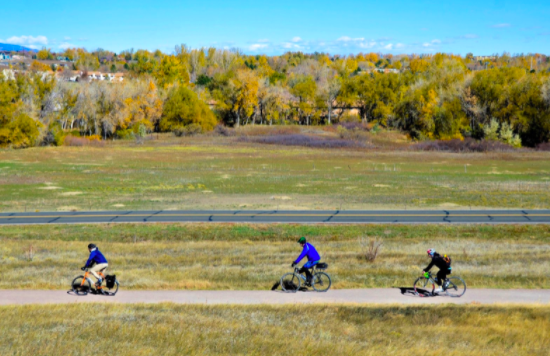COLLABORATING FOR A EQUITABLE COVID-19 RECOVERY
Between the impacts of COVID-19 and a national awakening to systemic injustices, the events of 2020 showcased the inequities and divisions in our nation. In light of these events, governments throughout the United States have re-examined their decision-making practices, leading many to pledge to be more inclusive and to work with the communities who are hit the hardest. However, pledging to do it, and actually figuring out how to do it are two different challenges.
Recovery from the Covid-19 pandemic poses a pivotal moment to build back communities better. President Biden’s American Rescue Plan Act (ARPA) came at a crucial time as communities throughout the world are building back towards social, physical, and financial security. In March of 2021, The U.S. Treasury Department announced $350 billion of the American Rescue Plan will be allocated to Coronavirus State and Local Fiscal Recovery Funds for eligible state, local, territorial, and Tribal governments.
The County of Boulder recognized this moment and sought to work with on-the-ground stakeholders in a truly collaborative and transparent planning process to determine how to allocate $64 million in federal funding to projects with strong support. Rebuild by Design partnered with the County of Boulder to garner insight from communities throughout all of Boulder County, with an emphasis on those most impacted by the pandemic, namely low income communities and communities of color, to inform the distribution of a portion of the County’s recovery funds in ways that would provide measurable equitable outcomes to build assets, strength, and resilience for community members who suffered in disparate ways due to racial, social, and gender inequalities.
PHASE 1
Rebuild worked with the Boulder County Commissioners’ Office to identify local partner organizations to form a Steering Committee and design an engagement process to understand who was impacted most by the pandemic, how they were impacted, and how the ARPA funds could be allocated to be transformational for residents, workers, businesses and students.
Rebuild by design led the Steering Committee through a collaborative process to define equitable and inclusive principles of engagement. Because the pandemic was still ongoing, the group determined that a survey, along with targeted events, would be the best method to hear feedback from the greatest number of those impacted.
Over the course of 6 weeks, County Staff, and Partner Organizations organized and/or attended over 40 events, contacted over 300 local nonprofits, and collected over 1500 surveys. The results and analysis of this effort are captured in the ARPA Steering Committee Preliminary Engagement Report. (You can watch the presentation to the Board of County Commissioners here.)
Feedback revealed widespread skepticism and doubts from the community that their opinions would be heard. We also heard that while the County has made resources available to those who have struggled throughout the pandemic, many individuals and businesses have been unaware of the programs they can access or do not know how to navigate the current systems.
PHASE 2
The results from the public engagement showed three clear priority areas in need of investment in the County: Economic Development, Affordable Housing, and Mental Health & Social Resilience. Rebuild worked with the Steering Committee to facilitate an application process and appointment of 36 community members to participate in subject-specific working groups to further investigate the three focus areas. These working groups were co-led by County Staff members and Community Members, had a County Commissioner Sponsor, and had the assistance of a County Community Engagement Specialist.
These working groups put forward recommendations to the Board of County Commissioners (BOCC) for the use of the ARPA funds. Those recommendations can be found in the final project report: A Community-Driven Path Toward an Equitable Recovery. The BOCC determined to fund all recommendations from the working groups. Those funded programs and the breakdown of ARPA allocations can be found here.

